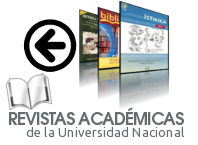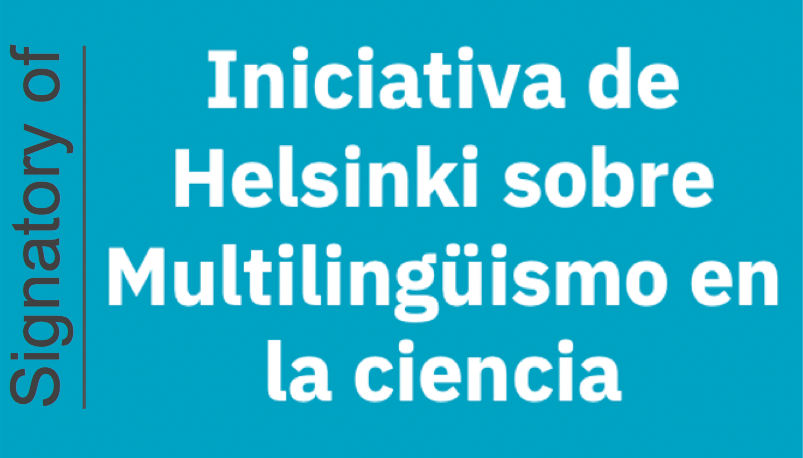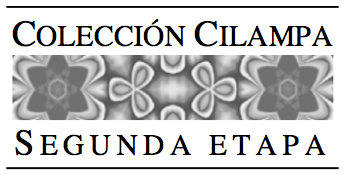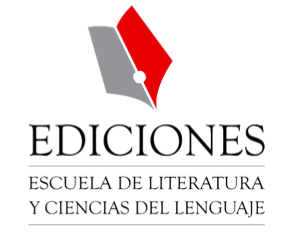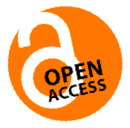Teaching Methodology and Receptive Vocabulary Measures
DOI:
https://doi.org/10.15359/rl.2-66.5Palabras clave:
vocabulario, vocabulario receptivo, VLT, lectura, aprendizaje del inglésResumen
Se analiza la importancia del vocabulario receptivo y sus efectos en la comprensión de lectura. Se mide el conocimiento de vocabulario mediante la Prueba de Niveles de Vocabulario (a nivel de 2000 palabras), así como mediante una prueba de comprensión de lectura, donde el vocabulario aparece en contexto de lecturas. Se comparan los resultados de estudiantes de tres colegios con distintas metodologías. El análisis estadístico señala diferencias estadísticamente significativas entre los tres colegios y sobresalen los estudiantes que reciben enseñanza por contenidos.
Referencias
Agustín-Llach, María P. and Melania Terrazas-Gallego. “Vocabulary Knowledge Development and Gender Differences in a Second Language,” Estudios de Lingüística Inglesa Aplicada 12 (2012): 45-75, <http://revistas.uned.es/index.php/ELIA/article/view/18027>.
Baker, Colin and Wayne E. Wright. Foundations of Bilingual Education and Bilingualism. 6th ed. Bristol: Multilingual Matters, 2017.
Baker, Colin. Foundations of Bilingual Education and Bilingualism. 5th ed. Bristol: Multilingual Matters, 2011.
Cambridge English Language Assessment. Cambridge English ESOL Skills for Life: Entry 3. Cambridge: CUP. 13. Nov. 2016. <http://www.cambridgeenglish.org/exams-and-tests/skills-for-life/>.
Canga-Alonso, Andrés. “Receptive Vocabulary Size of Secondary Spanish EFL Learners,” Revista de Lingüística y Lenguas Aplicadas 8 (2013): 66-75. 13. DOI: doi:10.4995/rlyla.
Castro-García, Damaris (2017). “Receptive Vocabulary Measures for EFL Costa Rica High School Students», IJES 17, 2 (2017): 81-99. DOI: doi:10.6018/ijes/2017/2/265681.
Castro-García, Damaris. Receptive and Productive Vocabulary Profiles of High School Students in Content Based and Foreign Language Instruction: A Costa Rican Perspective. Salamanca: Unpublished Doctoral Dissertation, 2018.
Dóczi, Brigita, and Judith Kormos. Longitudinal Development in Vocabulary Knowledge and Lexical Organization. Oxford: OUP, 2016.
Fernández-Fontecha, Almudena and Andrés Canga-Alonso. “A Preliminary Study on Motivation and Gender in CLIL and non-CLIL Types of Instruction,” IJES 14, 1 (2014): 21-36. <http://revistas.um.es/ijes>.
Fernández-Fontecha, Almudena. “Receptive Vocabulary Knowledge and Motivation in CLIL and EFL,” Revista de Lingüística y Lenguas Aplicadas 9 (2014): 23-32. DOI: doi: 10.4995/rlyla.2014.2077.
Hunt, Allan, and David Beglar. “A Framework for Developing EFL Reading Vocabulary,” Reading in a Foreign Language 17, 1 (2005): 23-59. ERIC, 1. Nov. 2017. <https://eric.ed.gov/?id=EJ689121>.
IBM Corp. IBM SPSS Statistics for Windows (Version 20.0). Armonk, NY: IBM Corp., 2011.
Jiménez-Catalán, Rosa María and Melania Terrazas Gallego. “The Receptive Vocabulary of English Foreign Language Young Learners,” Journal of English Studies 5, 6 (2005): 173-191. Universidad de la Rioja, 13 Nov. 2015. <https://publicaciones.unirioja.es/ojs/index.php/jes/article/ viewFile/127/107>.
Laufer, Batia and Geke Ravenhorst-Kalovski. “Lexical Threshold Revisited: Lexical Text Coverage, Learners’ Vocabulary Size and Reading Comprehension,” Reading in a Foreign Language 22.1 (2010): 15-30. ERIC, 7 Nov. 2016, <https://files.eric.ed.gov/ fulltext/EJ887873.pdf>.
Laufer, Batia. “The Development of Passive and Active Vocabulary in a Second Language: Same or Different?”, Applied Linguistics 19, 2 (1998): 255-271. DOI: doi:10.1093/applin/19.2.255.
Laufer, Batia. “How Much Lexis is Necessary for Reading Comprehension?”, Vocabulary and Applied Linguistics. P. J. L. Arnaud and H. Béjoint, eds. London: Macmillan, 1992. 126-132.
Laufer, Batia. “The Lexical Threshold of L2 Reading: Where It Is and How It Relates to L1 Reading Ability,” Approaches to Second Language Acquisition. Jyväskylä: University of Jyväskylä K. Sajaara and C. Fairweather, eds. 1996, 55-62.
Mezquita López, M. “La evaluación de la competencia léxica: tests de vocabulario. Su fiabilidad y validez.” Diss. University of Granada, Spain, 2005.
Nation, Paul and Stuart Webb. Researching and Analyzing Vocabulary. Boston: Heinle Cengage Learning, 2011.
Nation, Paul. “Research into Practice: Vocabulary,” Language Teaching 44, 4 (2011): 529-539. DOI: doi:10.1017/S0261444811000267.
Nation, Paul. “Testing and Teaching Vocabulary,” Guidelines 5 (1983): 12-25. Victoria University. 16. Nov. 2015, <https://www.victoria.ac.nz/lals/about/staff/paul-nation>.
Nation, Paul. Teaching and Learning Vocabulary. New York: Heinle & Heinle, 1990.
Olmos, Carmen. “An Assessment of the Vocabulary Knowledge of Students in the Final Year of Secondary Education. Is their Vocabulary Extensive Enough?”, International Journal of English Studies 9.3 (2009): 73-90.
Özönder, Özgül. “Student EFL Teachers’ Receptive Vocabulary Size,” Procedia: Social and Behavioral Science 232 (2016): 444-450. DOI: doi:10.1016/j.sbspro.2016.10.061.
Qian, David D. “Investigating the Relationship Between Vocabulary Knowledge and Academic Reading Performance: An Assessment Perspective,” Language Learning 52, 3 (2002): 513-536.
Read, John. “Measuring the Vocabulary Knowledge of Second Language Learners,” RELC Journal 19, 2 (1988): 12-25. DOI: doi:10.1177/003368828801900202.
Schmitt Norbert, Schmitt Diane, and Caroline Clapham. “Developing and Exploring the Behaviour of Two New Versions of the Vocabulary Levels Test,” Language Testing 18, 1 (2001): 55-88. DOI: doi:10.1177/026553220101800103.
Schmitt, Norbert. “Review Article: Instructed Second Language Vocabulary Learning,” Language Teaching Research 12, 3 (2008): 329-363. DOI: doi:10.1177/136216880 8089921.
Stæhr, Lars S. “Vocabulary Size and the Skills of Listening, Reading and Writing,” The Language Learning Journal 36, 2 (2008): 139-152. DOI: doi:10.1080/095717308023 89975.
Descargas
Publicado
Cómo citar
Número
Sección
Licencia
Principios básicos:
a) Los autores conservarán los derechos de propiedad intelectual de sus aportes o artículos;
b) Cada autor deberá indicar expresamente que ese artículo lo entrega, en calidad de exclusividad, a la revista LETRAS; y
c) La revista Letras se reservará el derecho de autorizar para fines académicos no lucrativos la reproducción y uso de ese material por parte de terceros, siempre que éstos indiquen expresamente la procedencia del artículo. Todo ello se postula en concordancia con la normativa de "Creative Commons Atribution License", recomendada.

This work is licensed under a Creative Commons Attribution-NonCommercial-NoDerivs 3.0 Costa Rica License.

